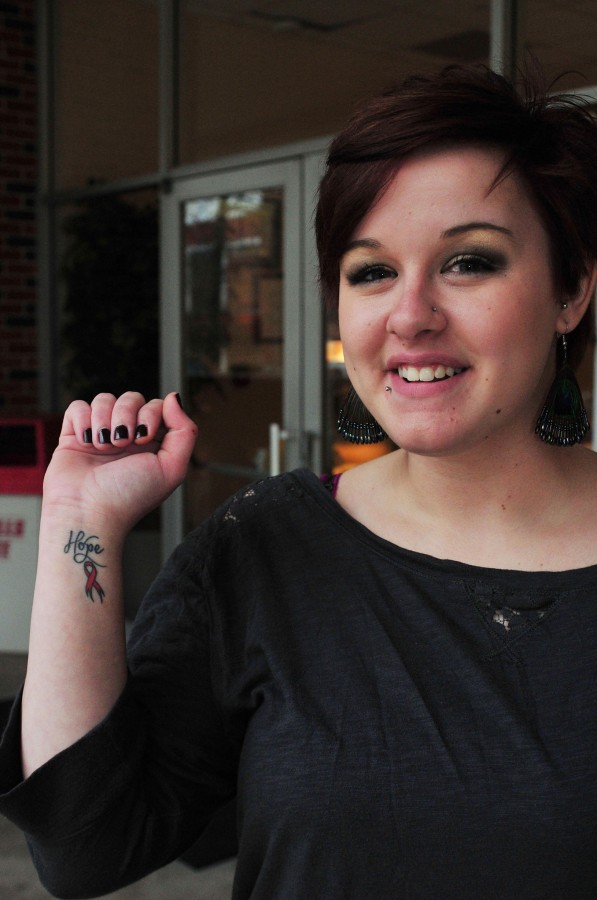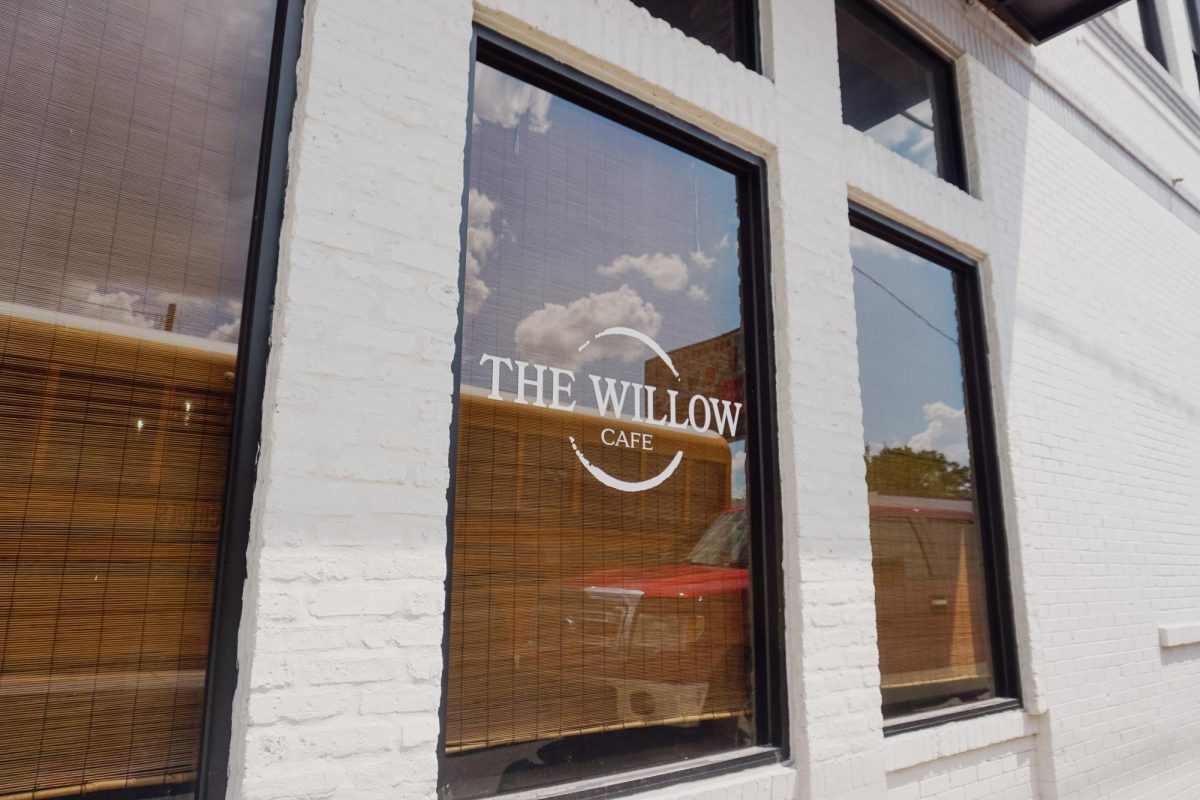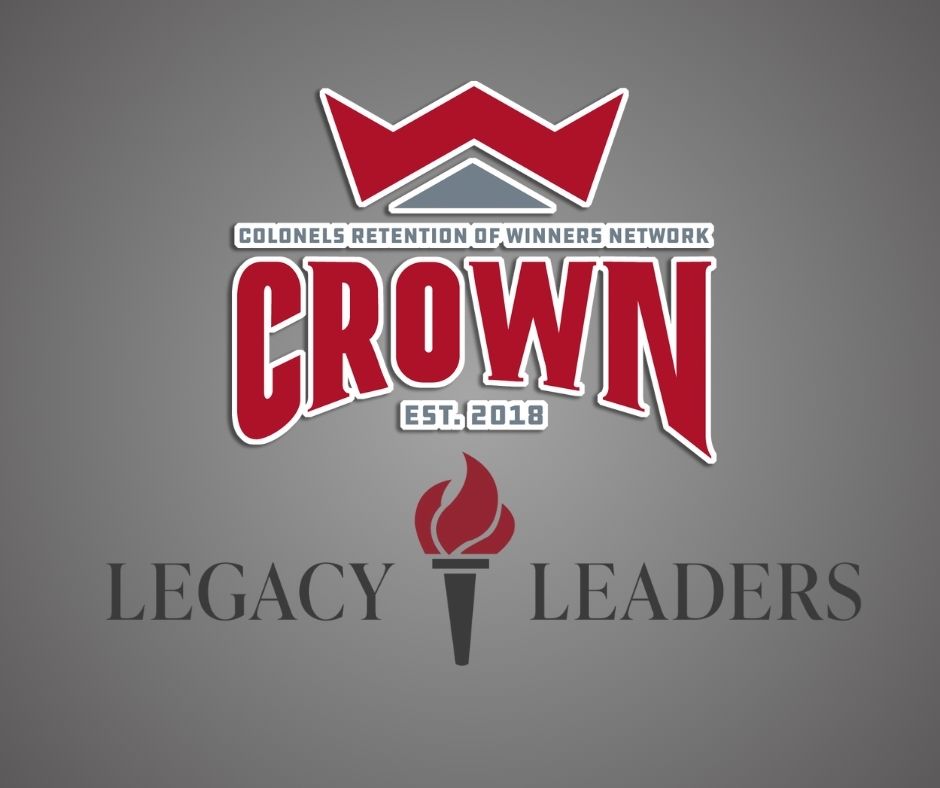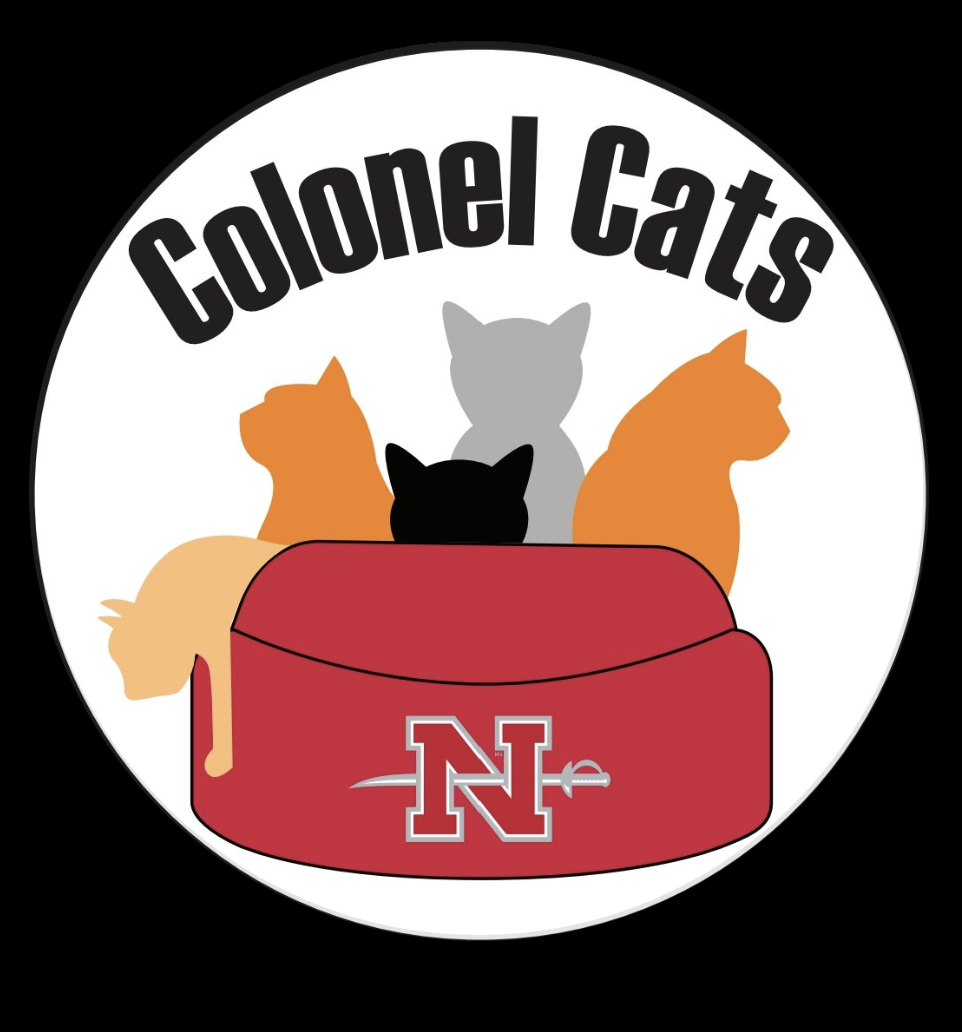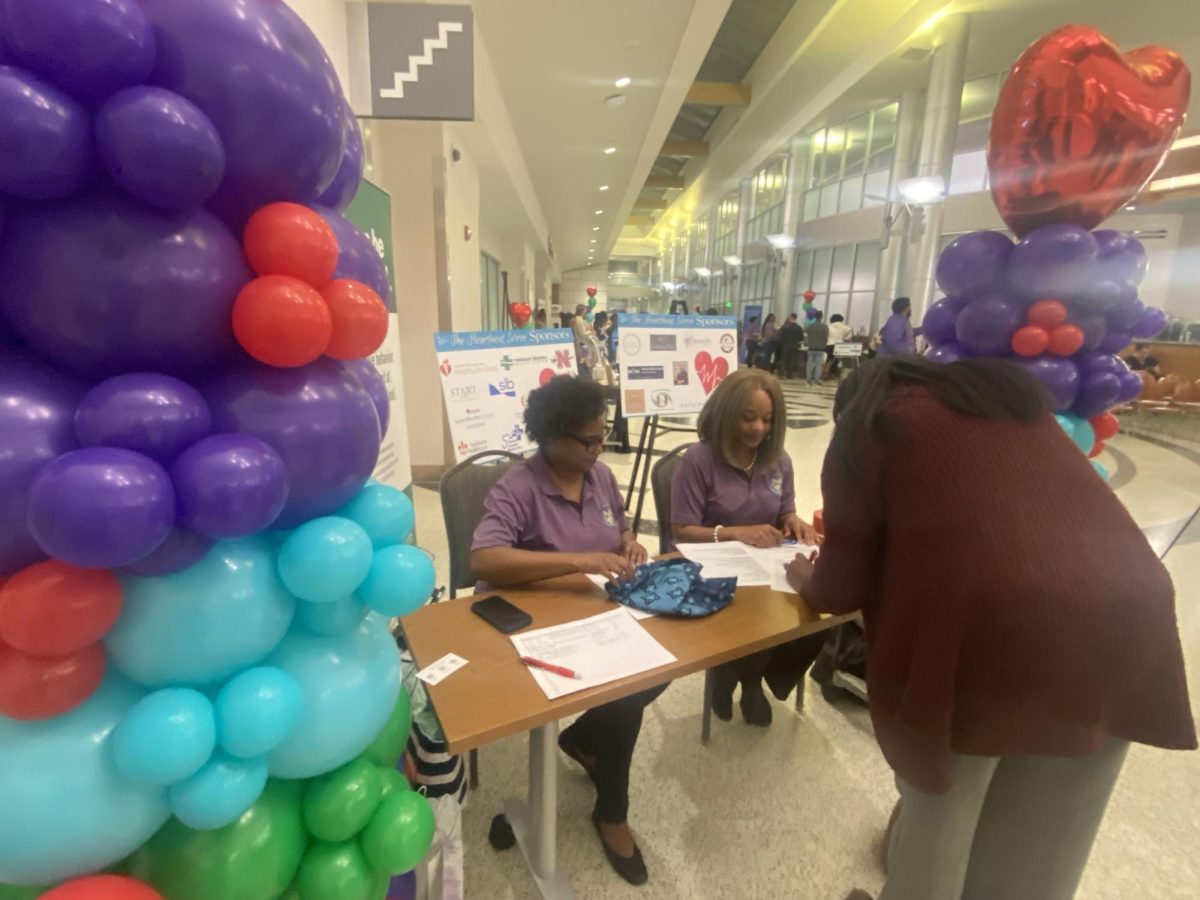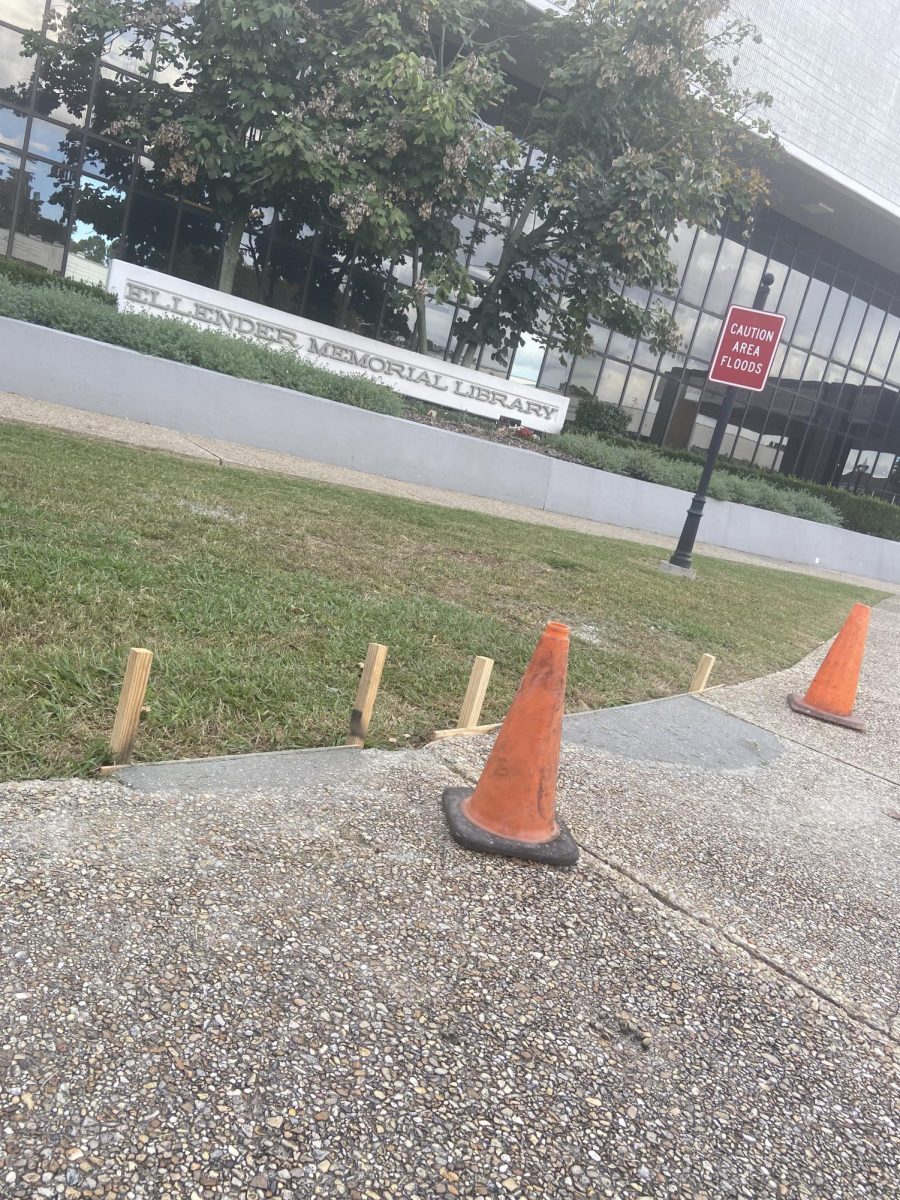Tattoos are a form of personal expression that can affect students’ career opportunities if visible in certain professions.
Nicholls students are faced with the decision of whether or not to get a visible tattoo when going to a tattoo parlor. There is much to consider if a student’s future career is in a professional environment that does not accept tattoos.
Students with visible tattoos who are looking to work in a professional environment face the issue of not getting hired because of them.
Kristie Tauzin Goulas, director of Career Services, said she believes that students should cover their tattoos when they go to job interviews.
“It is still a taboo thing for some people,” Tauzin said. “It is a generational thing where some people still believe that the only people back in their day that got tattoos were military people or bikers.”
According to the Pew Research Center, 38 percent of 18 to 25-year-olds have tattoos. Of the people that have tattoos, 50 percent have two to five tattoos, and 18 percent have six or more tattoos.
“Students have to understand that if you are going to have to work for somebody, you are going to have to conform at work to your boss’ beliefs and cover them up,” Tauzin said. “Your boss may believe that it may offend their customers.”
According to Vault.com, 85 percent of employers say that having a tattoo can hurt an applicant’s chances of getting a job. Two places in the Thibodaux/Houma area that ask employees to cover up their tattoos are Starbucks and Chuck E. Cheese’s.
“Some people do not care about fitting in, and that is their choice,” Tauzin said. “They may find it harder to get a job or keep a job if they choose not to conform to what their employers want.”
Tauzin believes that some students should be more aware of where they get tattoos.
“We, as teachers and adults, are here to tell you what it is going to be like in the real world,” Tauzin said. “Students should think about the pros and cons of getting a tattoo, or they should hide it in a professional environment.”
Leith Adams, biology instructor, has a visible tattoo that is displayed when he is teaching.
“Tattoos are like adding to the individual,” Adams said. “My tattoo is a DNA strand that relates to what I teach, which is biology. I thought it was a cool way to intertwine my career and add to the biologist that I am.”
Adams talked to his department head at the time, John Doucet, before getting the tattoo in 2009.
“Dr. Doucet was very supportive of it, but I know if I was in another department like management, I could not get away with it,” Adams said. “I think they knew when they first hired me they were getting me as a package with dreadlocks, and getting a tattoo would not be too much more. It is cool to be an individual in the biology department.”
Not all people that have visible tattoos are faced with an employer not hiring them because they respectfully hide their tattoos in a professional environment. Stuart Babin, general studies junior from Houma, is an example.
“I always wear long sleeves because my tattoos are personal to me,” Babin said. “I don’t like to show them off so I am covered most of the time.”
Babin explains that his family does not like his tattoos, so he wears long sleeves, but when he is with friends, he wears short sleeves because he is more comfortable around them.
“It is a culture change right now, and a friend of mine that is a tattoo artist made a comment recently that in our lifetime we may have a President that will have a tattoo because it is becoming acceptable of the culture.”
Babin has two full sleeves, which is a full arm tattoo, a leg sleeve, and some others on his body, but students would not notice because he covers his tattoos almost daily.
“I believe that once it becomes more acceptable, then I probably would feel more comfortable showing my tattoos,” Babin said. “I am comfortable with myself, but try to be politically correct around others so I won’t be stereotyped or discriminated against.”
Johanna Traxler, English junior from Houma, also hides her Yankee-inspired tattoo and personal tattoo.
“When I got my tattoos, I got them on my leg because I did not want it to be an issue,” Traxler said. “I was a waitress, and if my tattoos were visible I believed that it would affect the way that people look at me.”
Traxler plans to be a political speech-writer and write a political column in a publication.
“People take your physical appearance into account even without tattoos, and that can affect wherever you plan to work,” Traxler said. “Tattoos are becoming more acceptable, but it depends on where you work.”
Dominique Polk, business law junior from St. Martinville, plans on getting a tattoo that is not visible because he is thinking of his future profession of being a lawyer.
“I plan on getting my line name, Massacre, from my fraternity, Phi Beta Sigma, on my back,” Polk said. “Nobody should see my tattoo unless I am in court and the judge says, ‘Hey, Dominique take your shirt off,’ but I highly doubt that will happen.”
Stacey Nichols, faculty advisor of the Society for Human Resource Management and instructor of management and marketing, believes that it depends if businesses hire people with visible tattoos.
“It just depends on the business and the image they’re trying to convey to their customers,” Nichols said. “A business focused on art, creativity and self expression may actually encourage tattoos as a way of connecting with their customers.”
Nichols states that lots of businesses have dress codes that allow tattoos as long as they are not visible while in uniform.
“I think students need to understand that a business has an image to maintain, and things like foul language, gang signs and racial prejudice aren’t acceptable anywhere, whether it’s on their marketing billboards or their employee’s forearm,” Nichols said.


